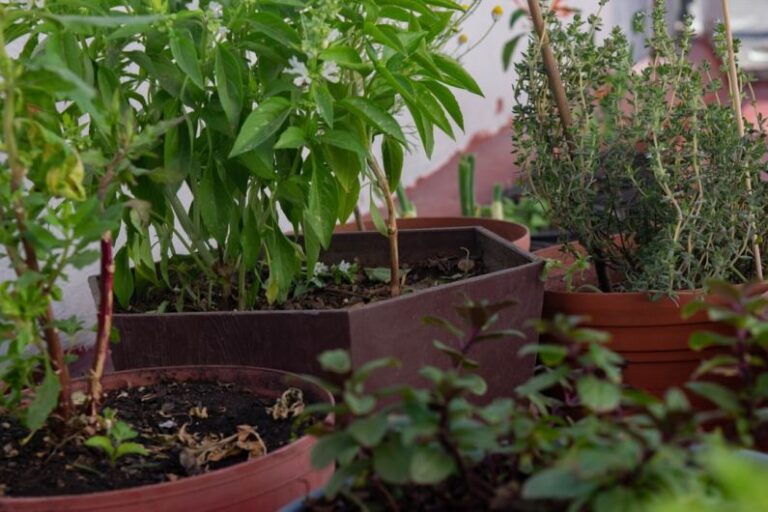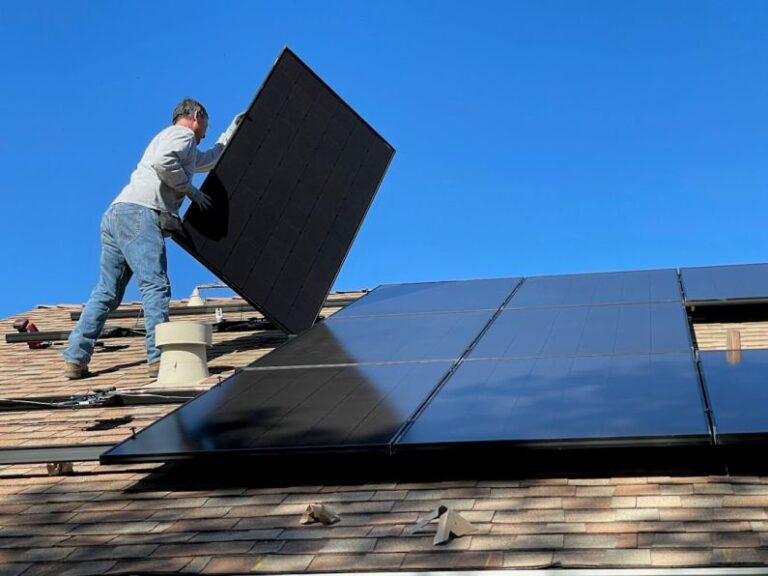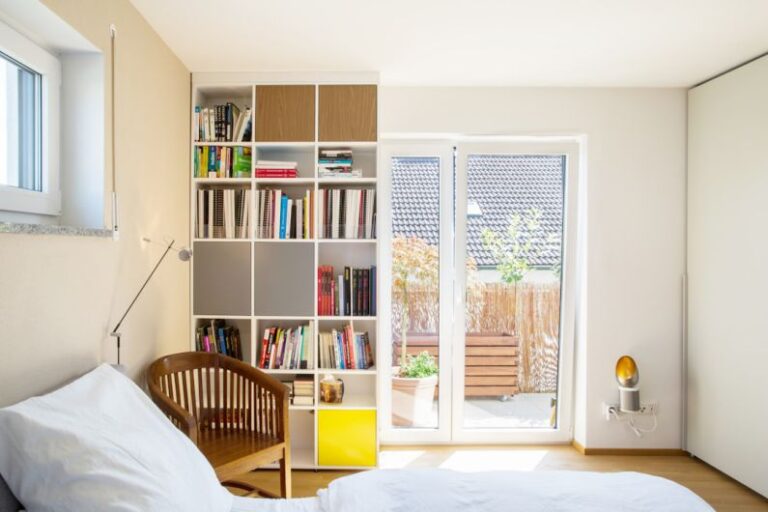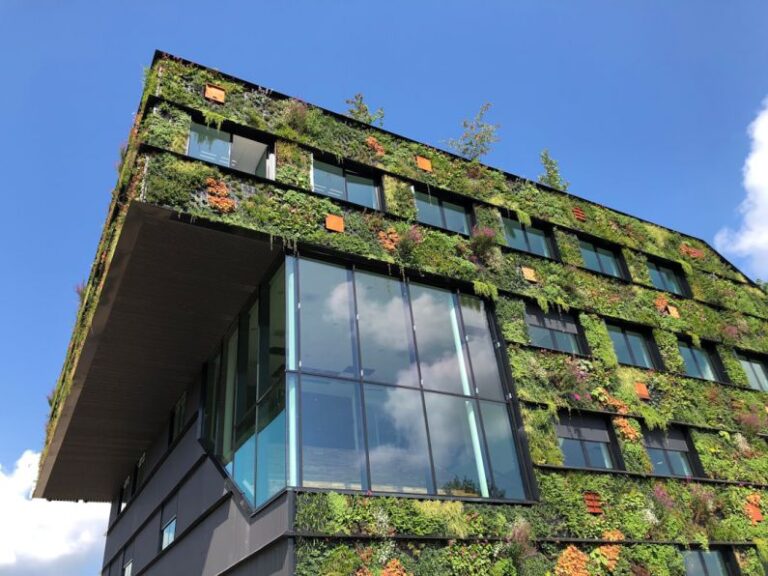Eco-friendly Materials for Your Home Renovation
When it comes to renovating your home, choosing eco-friendly materials not only benefits the environment but can also enhance the overall health and well-being of your household. From sustainable wood to recycled glass, there are plenty of options available that are both stylish and environmentally responsible. In this article, we will explore some of the top eco-friendly materials you can incorporate into your home renovation project.
Sustainable Wood
One of the most popular eco-friendly materials for home renovation is sustainable wood. Opting for wood that is certified by organizations such as the Forest Stewardship Council (FSC) ensures that it comes from responsibly managed forests. Bamboo is another excellent choice, as it is a fast-growing and renewable resource that can be used for flooring, cabinets, and furniture. Not only does sustainable wood add a touch of natural beauty to your home, but it also helps reduce deforestation and carbon emissions.
Recycled Glass
Another eco-friendly material to consider for your home renovation is recycled glass. From countertops to tiles, using recycled glass in your design adds a unique and sustainable touch to your space. Recycled glass is not only durable and easy to maintain but also helps divert waste from landfills. Plus, the vibrant colors and textures of recycled glass can add a modern and artistic flair to any room in your home.
Reclaimed Metal
For a more industrial look, consider incorporating reclaimed metal into your home renovation project. Salvaged metal materials such as copper, steel, and aluminum can be repurposed for various applications, including roofing, countertops, and fixtures. Not only does using reclaimed metal reduce the need for new mining and manufacturing, but it also adds a sense of history and character to your home. Embrace the imperfections and unique patinas of reclaimed metal for a one-of-a-kind design that’s both eco-friendly and stylish.
Natural Fiber Carpets
When it comes to flooring, natural fiber carpets are an excellent eco-friendly option for your home renovation. Materials such as sisal, jute, and wool are not only biodegradable but also renewable and sustainable. Natural fiber carpets are durable, easy to clean, and free from harmful chemicals typically found in synthetic carpets. Add warmth and texture to your home while reducing your carbon footprint by choosing natural fiber carpets for your next renovation project.
Low-VOC Paints
Painting is a quick and cost-effective way to refresh your home’s interior, but conventional paints often contain volatile organic compounds (VOCs) that can off-gas harmful chemicals into the air. Opt for low-VOC or zero-VOC paints for a healthier and more eco-friendly alternative. These paints emit fewer toxins, reducing indoor air pollution and creating a safer environment for you and your family. With a wide range of colors and finishes available, you can achieve the perfect look for your home without compromising on sustainability.
Energy-Efficient Windows
Upgrading to energy-efficient windows is another eco-friendly choice that can improve the comfort and energy efficiency of your home. Windows with high-performance glazing and insulation help reduce heat loss in the winter and heat gain in the summer, leading to lower energy bills and reduced carbon emissions. Look for windows with the ENERGY STAR label to ensure they meet strict energy efficiency criteria and help you create a more sustainable living space.
Green Roofing Materials
When it comes to the exterior of your home, consider using green roofing materials for a more eco-friendly and energy-efficient option. Green roofs, which are covered with vegetation, provide natural insulation, absorb rainwater, and reduce urban heat island effects. They also extend the lifespan of your roof and create a habitat for birds and insects. Whether you opt for a full green roof or incorporate green roofing materials such as metal shingles or clay tiles, you can reduce your environmental impact while enhancing the beauty and functionality of your home.
Innovative Insulation
Proper insulation is key to creating a comfortable and energy-efficient home. Instead of traditional fiberglass insulation, consider using innovative and eco-friendly insulation materials such as recycled denim, cellulose, or wool. These materials offer excellent thermal performance, moisture control, and sound absorption properties while reducing waste and promoting sustainable practices. Improve the energy efficiency of your home and create a healthier indoor environment by choosing insulation materials that prioritize both comfort and sustainability.
Renewable Energy Systems
For those looking to take their eco-friendly home renovation to the next level, consider incorporating renewable energy systems such as solar panels or geothermal heating. By harnessing the power of the sun or the earth’s natural heat, you can reduce your reliance on fossil fuels, lower your energy bills, and decrease your carbon footprint. Renewable energy systems not only benefit the environment but also increase the value of your home and provide long-term energy savings. Take advantage of clean and sustainable energy sources to create a more resilient and eco-friendly living space for you and future generations.
Innovative Water-Saving Fixtures
Water conservation is another important aspect of eco-friendly home renovation. Upgrade your bathrooms and kitchen with innovative water-saving fixtures such as low-flow toilets, faucets, and showerheads. These fixtures help reduce water consumption, lower your water bills, and minimize strain on local water resources. Look for WaterSense-certified products that meet strict efficiency standards and provide the same performance and comfort as traditional fixtures. By incorporating water-saving fixtures into your home renovation, you can contribute to a more sustainable and water-efficient lifestyle.
Sustainable Landscaping
Don’t forget to extend your eco-friendly efforts to your outdoor space by incorporating sustainable landscaping practices. Choose native plants that require less water and maintenance, create rain gardens to capture and filter stormwater runoff, and use permeable paving materials to reduce water runoff and promote groundwater recharge. Sustainable landscaping not only enhances the beauty and biodiversity of your property but also conserves water, reduces erosion, and supports local wildlife. Create a harmonious and eco-friendly outdoor environment that complements your sustainable home renovation efforts.
Embrace Eco-Friendly Living
As you embark on your home renovation journey, consider the impact of your choices on the environment and future generations. By incorporating eco-friendly materials and practices into your project, you can create a more sustainable, healthy, and beautiful home for yourself and your loved ones. From sustainable wood to energy-efficient windows, there are plenty of options available to help you reduce your environmental footprint and embrace a more eco-friendly lifestyle. Make conscious decisions that prioritize sustainability and design a home that reflects your values and commitment to a greener future. Start your eco-friendly home renovation today and make a positive difference for the planet and generations to come.






